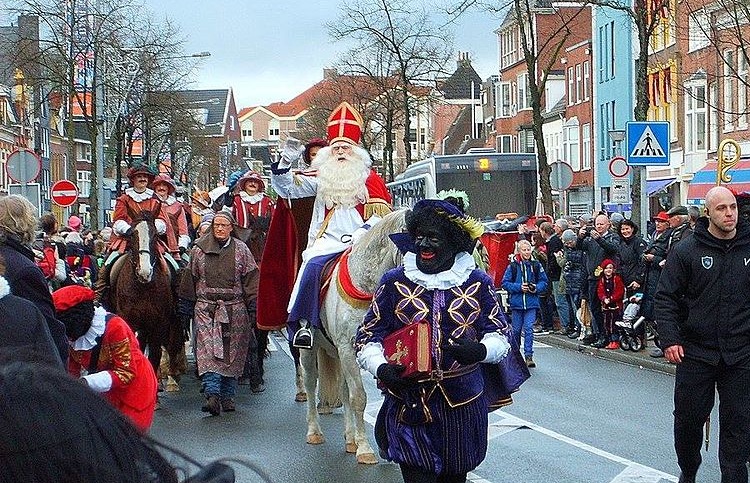Eduardo González
Christmas gifts in the Netherlands do not come from the East or Lapland. They come from Spain and their protagonist is none other than Santa Claus’s immediate predecessor, Saint Nicholas.
According to tradition, Saint Nicholas (Sinterklaas in Dutch), a bishop from the 4th century, appears on the night of December 5-6 laden with gifts for Dutch children, accompanied by his curious pages, the Zwarte Pieten (the Black Peters). The man is dressed in red and white, with a mitre and a staff, as befits a bishop, and many miracles are attributed to him, most of them related to children.
A very striking detail about Sinterklaas is his origin. According to tradition, he resides in Spain (some say Madrid, others Alicante) and arrives at the ports of the Netherlands on board a steamship, after which he rides a horse called Amerigo, accompanied by his pages, the Pedritos. This tradition, which has been celebrated since 1934 (except for a brief interruption due to the Second World War), is a very special moment for the Dutch and is usually broadcast live on television, as is the case with our own Cavalcade of the Three Wise Men.
The Spanish origin of Sinterklaas is attributed to some very indirect details of his biography. Nicholas was bishop of Myra, in western Anatolia (his homeland, in present-day Turkey), until the year 343. He died on 6 December 345 and was buried in Myra, but after this city was conquered by the troops of the Abbasid caliph of Baghdad at the beginning of the 8th century, his body was transferred to Bari. Bari is located in Puglia, in the south of Italy, and therefore in the so-called Kingdom of the Two Sicilies, which in the 16th century belonged to the Spanish Austrias. Probably for this reason, the Dutch associated the name of Nicholas with Spain. After the outbreak of the Dutch revolt against Philip II, Calvinists and Lutherans tried to eliminate the feast of St. Nicholas, but his enormous popularity, both among Catholics and Protestants, prevented this.
The feast of St. Nicholas is celebrated on December 6, the date of his death (and Constitution Day in Spain). For this reason, the night of December 5-6 is the night of gifts in the Netherlands, in part of Belgium, in some former Dutch colonies and, to a lesser extent, in some localities in Luxembourg, Austria, Switzerland, Germany, Poland and the Czech Republic.
The tradition crossed the Atlantic Ocean with the emigration of Dutch settlers to America, who maintained the feast of St. Nicholas in the colony of New Amsterdam. After its conquest by England in the 17th century, the city was renamed New York and Sinterklaas gradually became Santa Claus. The character later moved to England and France, where he became known as Papa Noel (Father Christmas), one of the great international icons of Christmas, popularised above all (but not only) by Coca Cola from the 1930s onwards and who, unlike Sinterklaas, travels with his gifts not from Spain, but from the North Pole.







